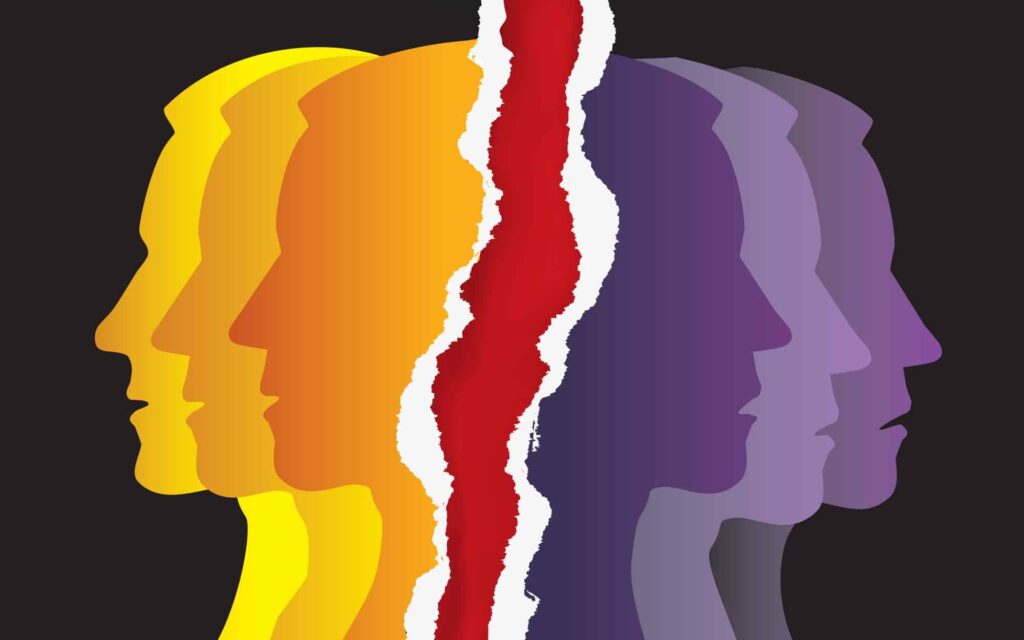Schizophrenia and OCD are two mental health disorders that are often confused with one another. They share some similarities, but they also have some key differences. It’s important to understand the difference between these two conditions, as they can affect people in different ways. In this blog post, we will discuss the relationship between schizophrenia and OCD, as well as the symptoms of each condition. We will also provide information on how to get help if you or someone you know is struggling with either schizophrenia or OCD.
Contents
What Is Schizophrenia?
Schizophrenia is a mental health disorder that affects a person’s thoughts, feelings, and behavior. People with schizophrenia may have trouble distinguishing between what is real and what is not. They may also experience hallucinations, delusions, and disorganized thinking. It is important to note that schizophrenia is not the same as multiple personality disorder.
What Is OCD?
OCD is a mental health disorder that characterizes by obsessions and compulsions. Obsessions are repetitive, intrusive thoughts that can cause anxiety. Compulsions are repetitive behaviors or rituals that a person feels they must do to relieve their anxiety. People with OCD may have difficulty completing everyday tasks because of their obsessions and compulsions.
How Are Schizophrenia and OCD Related?

There is some evidence to suggest that schizophrenia and OCD share a common genetic link. However, it is important to note that not all people with schizophrenia will also have OCD, and vice versa. Some experts believe that the two conditions may share certain brain abnormalities. For example, both conditions have been linked to problems with the neurotransmitter serotonin. They have also been linked to abnormalities in the structure and function of the frontal lobes.
Both conditions can cause intrusive thoughts. People with schizophrenia may have delusions, which are false beliefs that they hold onto despite evidence to the contrary. People with OCD may also have obsessions, which are repetitive and intrusive thoughts that can cause anxiety. Both conditions can also cause problems with focus and concentration. Additionally, people with either condition may engage in repetitive behaviors or rituals.
Key Differences

There are also some key differences between schizophrenia and OCD. One of the most notable differences is that people with OCD generally recognize that their obsessions and compulsions are irrational, whereas people with schizophrenia do not typically realize that their delusions and hallucinations are not real.
Another key difference is that people with OCD tend to have good insight into their condition, whereas people with schizophrenia may lack the insight into their condition. This means that people with OCD are generally aware of the fact that their obsessions and compulsions are excessive and unreasonable, whereas people with schizophrenia may not realize that their thoughts and behaviors are abnormal.
Lastly, while both conditions can cause significant distress and impair a person’s ability to function in daily life, schizophrenia is generally more debilitating than OCD. Schizophrenia can cause a person to lose touch with reality, which can make it difficult for them to hold down a job or maintain relationships. People with OCD typically have more insight into their condition and as a result, they are often able to maintain their jobs as well as relationships.
Symptoms
The DSM-5 categorizes both these disorders in varying categories.
Schizophrenia
The symptoms of schizophrenia have four categories: positive, negative, cognitive, and effective. Positive symptoms are characterized by abnormal thoughts and behaviors. Negative symptoms characterize by a loss of normal thought and behavior. Cognitive symptoms are related to problems with memory and thinking. Affective symptoms are related to problems with emotion.
The symptoms of schizophrenia can vary from person to person. Some people may only experience mild symptoms, while others may have more severe symptoms. The most common manifestation of these symptoms include:
- Delusions
- Hallucinations
- Disorganized thinking
- Problems with focus and attention
- Changes in mood and behavior
OCD
OCD symptoms can also vary from person to person. Some people may only experience mild symptoms, while others may have more severe symptoms. The most common symptoms of OCD include:
- Obsessions with cleanliness, order, and symmetry
- Compulsions to wash hands, clean surfaces, or arrange objects
- Excessive doubt and fear
- Intrusive thoughts
- Avoidance of situations that trigger obsessions or compulsions
Treatment
Both schizophrenia and OCD are treatable conditions.
Schizophrenia is typically treated with a combination of medication and psychotherapy. Medication can help to reduce the symptoms of psychosis, such as delusions and hallucinations. Psychotherapy can help people with schizophrenia to manage their condition as well as improve their quality of life.
OCD is also typically treated with a combination of medication and psychotherapy. Medication can help to reduce the symptoms of OCD, such as obsessions and compulsions. Psychotherapy can help people with OCD to understand their condition and learn how to manage their obsessions and compulsions.
It is important to note that if one decides to undergo medication, it becomes crucial to stay in contact with your healthcare provider for monitoring the efficacy and side effects.
Conclusion
Schizophrenia and OCD are two conditions that share some similarities, but there are also some key differences between them. Both conditions can cause significant distress and impair a person’s ability to function in daily life, but schizophrenia is generally more debilitating than OCD. Schizophrenia is typically treated with a combination of medication and psychotherapy, while OCD is also typically treated with a combination of medication and psychotherapy. If you are looking for affordable Online OCD Counseling MantraCare can help: Book a trial OCD therapy session


